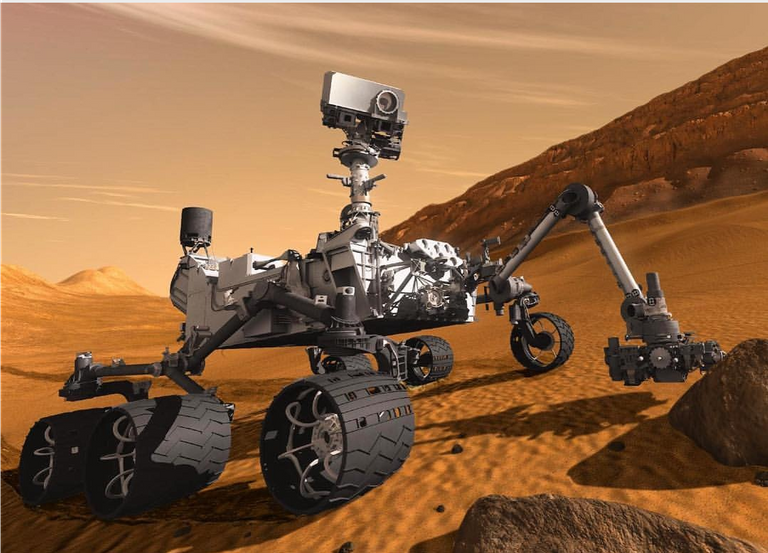 ★Curiosity★
★Curiosity★
The Mars Science Laboratory and its rover centerpiece, Curiosity, is the most ambitious Mars mission yet flown by NASA.
The rover's primary mission is to find out if Mars is, or was, suitable for life. Another objective is to learn more about the red planet's environment.
Curiosity's size allows it to carry a host of scientific experiments to zap, analyse and take pictures of any rock within reach of its 7-foot (2 meters) arm. Curiosity is about the size of a small SUV. It is 9 feet 10 inches long by 9 feet 1 inch wide (3 m by 2.8 m) and about 7 feet high (2.1 m). It weighs 2,000 lbs. (900 kilograms). Curiosity's wheels have a 20-inch (50.8 cm) diameter. Engineers at NASA's Jet Propulsion Laboratory designed the rover to roll over obstacles up to 25 inches (65 centimetres) high and to travel about 660 feet (200 meters) per day.
The $2.5-billion MSL spacecraft launched from Cape Canaveral, Florida, on Nov. 26, 2011, and arrived on Mars on Aug. 6, 2012, after a daring landing sequence that NASA dubbed "Seven Minutes of Terror."
A NASA panel selected the name Curiosity following a nationwide student contest that attracted more than 9,000 proposals via the Internet and mail. A sixth-grade student from Kansas, twelve-year-old Clara Ma from Sunflower Elementary School in Lenexa, Kansas, submitted the winning entry. As her prize, Ma won a trip to NASA's Jet Propulsion Laboratory (JPL) in Pasadena, California, where she signed her name directly onto the rover as it was being assembled.
curiosity has found organic matter on Mars in soil samples taken from 3 billion-year-old mudstone in the Gale crater. The rover has also detected methane in the Martian atmosphere. And it also has taken a lot of amazing pictures of the red planet.
Hi! I am a robot. I just upvoted you! I found similar content that readers might be interested in:
https://www.space.com/17963-mars-curiosity.html